Summary of the 2024 CSI Annual Meeting (the 16th CSI Congress of Immunology)
Source:CSI
2024-11-20
From October 24-27, 2024, the "16th Annual Meeting of the Chinese Society for Immunology (CSI)" was held in Hangzhou, Zhejiang Province, hosted by the Chinese Society for Immunology, co-organized by the Zhejiang Society of Immunology and the Immunology Research Institute of Zhejiang University. The congress set new records in terms of academic level, number of abstract submissions, and attendance scale. During the congress, the "9th CSI General Assembly" was held, and the new board of CSI council was elected. The following are the achievements of the congress:
1. The CSI Annual Meeting’s attractiveness has continued to grow steadily, based on years of ensuring high-quality academic exchanges and congress services. Despite significant growth last year, the number of abstract submissions and attendance still made a new history record. The congress received a total of 1,357 abstracts and had 4,199 registered representatives. Including invited speakers, exhibitor representatives, and volunteers, the on-site attendance exceeded 5,000 people.
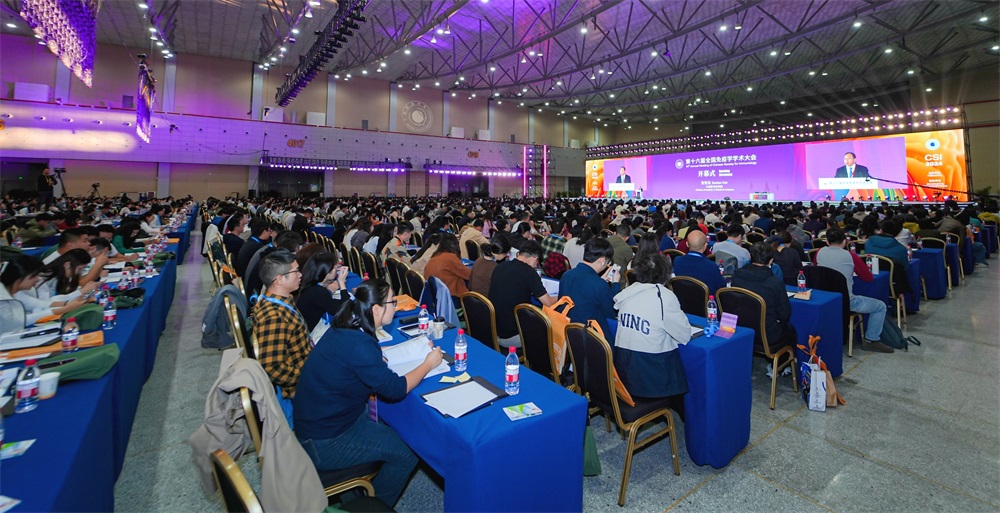
2. The outstanding invited talks played an academic leading role. The international forum of this congress featured eight distinguished speakers, including: Professor Frederick Alt from Harvard Medical School, Professor Zhijian Chen from the University of Texas Southwestern Medical Center, Professor Lieping Chen from Yale University School of Medicine, Professor Thirumala-Devi Kanneganti from St. Jude Children's Research Hospital, Professor Mitchell Kronenberg from La Jolla Institute for Immunology, Professor Tomohiro Kurosaki from Osaka University, Professor Qiang Pan-Hammarström from the Karolinska Institute, and Professor Graham Ogg from the University of Oxford.
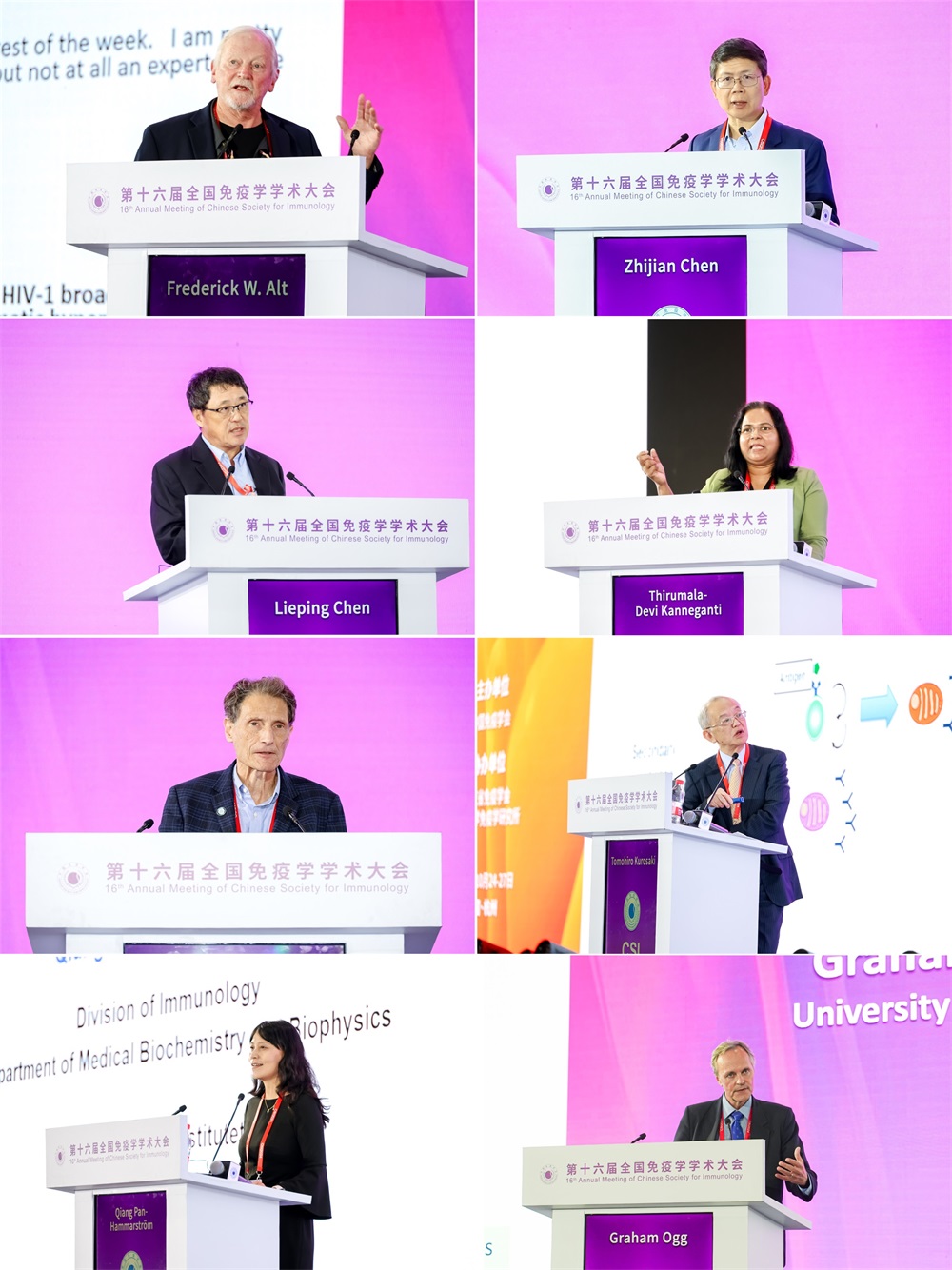
There were 27 talks by domestic invited lecturers, 7 of which were made by academicians including Professor Xuetao Cao from the Chinese Academy of Medical Sciences, Professor Zhigang Tian from the University of Science and Technology of China, and Professor Yuzhang Wu from the Army Medical University; 10 talks on the forefront of immunology led by Professor Bo Huang from the Chinese Academy of Medical Sciences Peking Union Medical College and Professor Yiwei Chu from Fudan University; and 10 speeches by young immunologists led by Professor Shu Zhu from the University of Science and Technology of China.
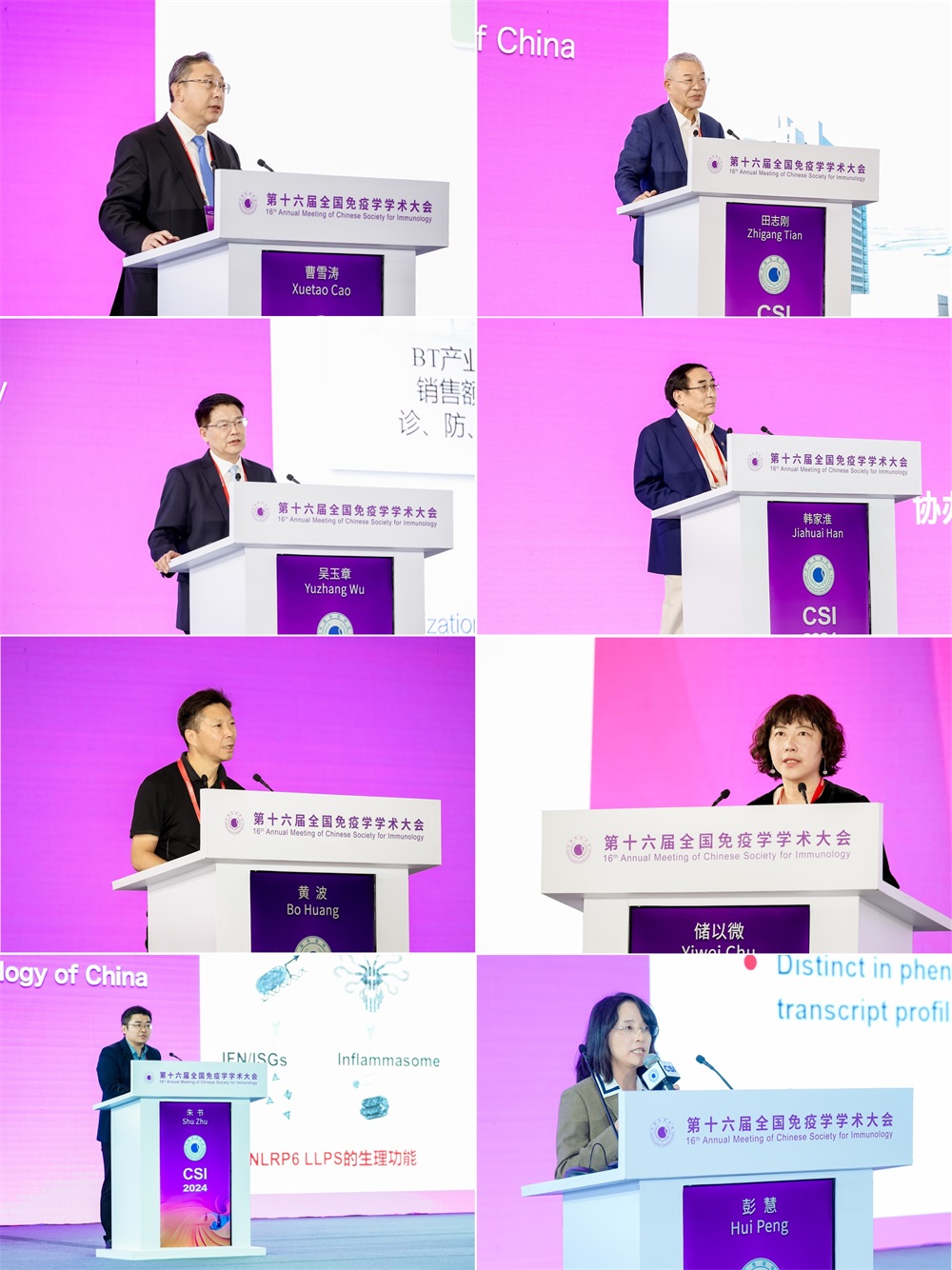
A total of 35 plenary lectures brought numerous global frontier topics in immunology-related fields, including gene rearrangement of immunoglobulins, the role of cGAS in inflammation, non-inflammatory tumor immunology, molecular mechanisms of innate immunity and inflammation in health and disease, innate-like T cells, the function and generation mechanism of memory B cells, genomic instability of B cells and lymphoma formation, CD1a reactive T cells and skin diseases, the role of hnRNP-A2B1 and innate sensing molecules in tumor immune evasion and immunotherapy, CD49a+ NK cells, pre-existing immunity and immune intervention, among others. High-level lectures and Q&A sessions helped participants understand the latest discoveries in the field, open up research ideas, and improve academic innovation capabilities. The presentations by young immunologists are evidences of more and more outstanding young talents emerging and gradually becoming the backbone of the immunology community.

3. The atmosphere of parallel symposia and poster sessions was intense. The academic committee reviewed nearly 1,400 abstract submissions and selected 300 oral presentations in 19 parallel symposia during two and a half days. In addition, 292 posters were selected. Together with oral presentations, the congress was providing ample opportunities for display and discussion. The enthusiasm of the participants was high, and there were frequent scenes of packed audiences in hot topics such as "Tumor Immune Recognition and Escape," "Innate Immune Recognition, Regulation, and Inflammatory Response," and "Immune Metabolism."
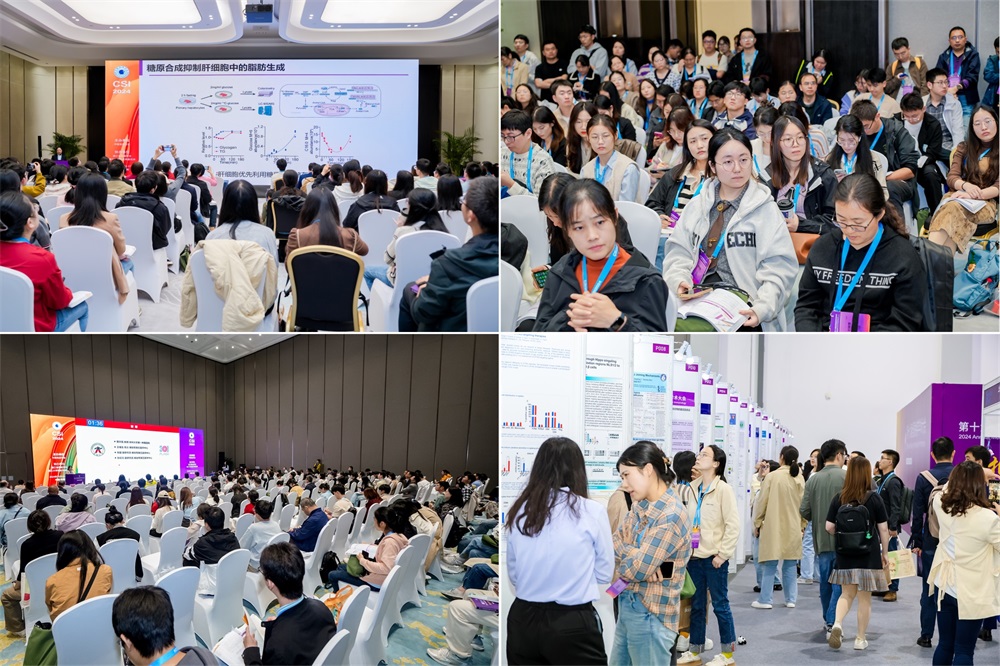
4. Special forums and other activities further enriched the content of the congress. Following last year's meeting, the number of pre-congress forums was further expanded to eight: Hong Kong and Macao Forum, Frontier Theories and Techniques in Tumor Immunity Forum, Immune Metabolism and Disease, Biomechanics & Immunity, Cutaneous Immunity, Intestinal Mucosal Immunity, Clinical Immunotherapy Forum, and Young Immunologist Forum. Representatives actively participated, and the response was enthusiastic.

During the congress, the CSI Working Committee on Science Popularization and Education organized the "Medical Immunology" series textbook launch, distributing textbooks to lucky representatives. The well-received "Editors Face to Face" event, featuring senior editors like Dr. Zhe Wang from Nature Cell Biology and Dr. Qingyu Huang from Nature Communications, facilitated deep exchanges with representatives, assisting and encouraging them to publish their academic achievements.
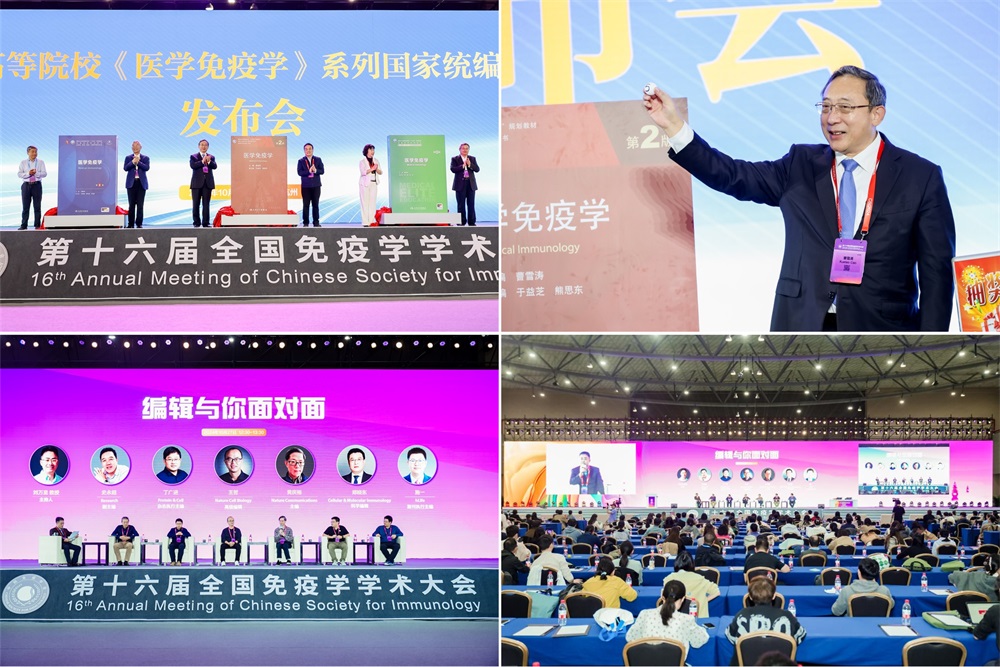
5. The 9th CSI General Assembly was successfully held on October 24. The Assembly elected the 9th board of council members. Prof. Bo Huang was elected CSI president; Prof. Zhi Yao, Prof. Yiwei Chu, Prof. Anlong Xu, Prof. Sidong Xiong, and Prof. Baojun Zhang were elected as vice presidents; Prof. Yuzhang Wu was elected chairman of the supervisory board; and Prof. Limin Zheng was appointed as the secretary-general. The 9th board consists of 139 council members and among them 40 executive members. During the congress, the 4th CSI Nomenclature Committee held its re-election meeting, with Prof. Zhi Yao elected as the new chairman; the 7th Committee of the CSI Veterinary Immunology Branch held its re-election meeting, with Prof. Chengjun Li elected as the new chairman.
6. The 12th CSI Academic Award-Young Scholar Award was awarded. 10 outstanding young scholars, including Dr. Yingjiao Cao from Sun Yat-sen University, received the award. The award ceremony was held at the closing ceremony of the congress, recognizing advanced achievements while inspiring all young people to strive for scientific peaks.
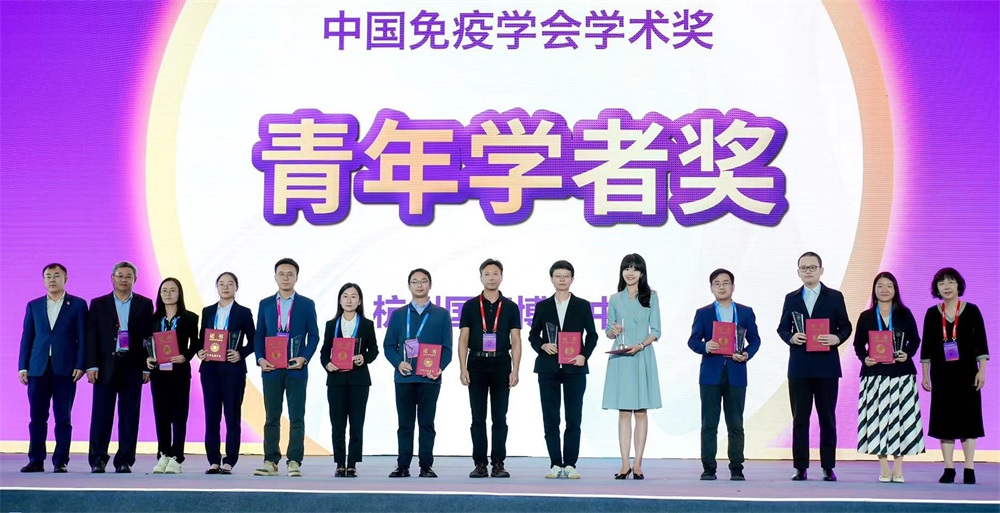
7. Under the leadership of the 8th CSI board of council members, the congress academic committee and organizing committee invested a lot of effort in top-level design, overall arrangement, management, and supervision. The volunteer team, organized and recruited by the Zhejiang Society of Immunology from 13 units across the province, made a significant contribution to on-site services and logistical support.
8. The congress received unwavering support from the sponsors. A total of 85 companies hosted exhibitions and satellite meetings at this congress, including long-term supporters of the society, such as strategic partners: BD Medical Devices Co., Ltd.; Gold Sponsors: Dakewei Biotech Co., Ltd., BioLegend (Beijing) Ltd.; Silver Sponsors: Thermo Fisher Scientific Inc., China National Biotec Group Company; Bronze Sponsors: Shanghai Cytek Biosciences, Proteintech, Sony Life Sciences, Miltenyi Biotec, Beckman Coulter Life Sciences, Thinkcyte K.K., etc. In the future. The society and enterprises continue to advance hand in hand, witnessing and jointly promoting the brilliant development of immunology.
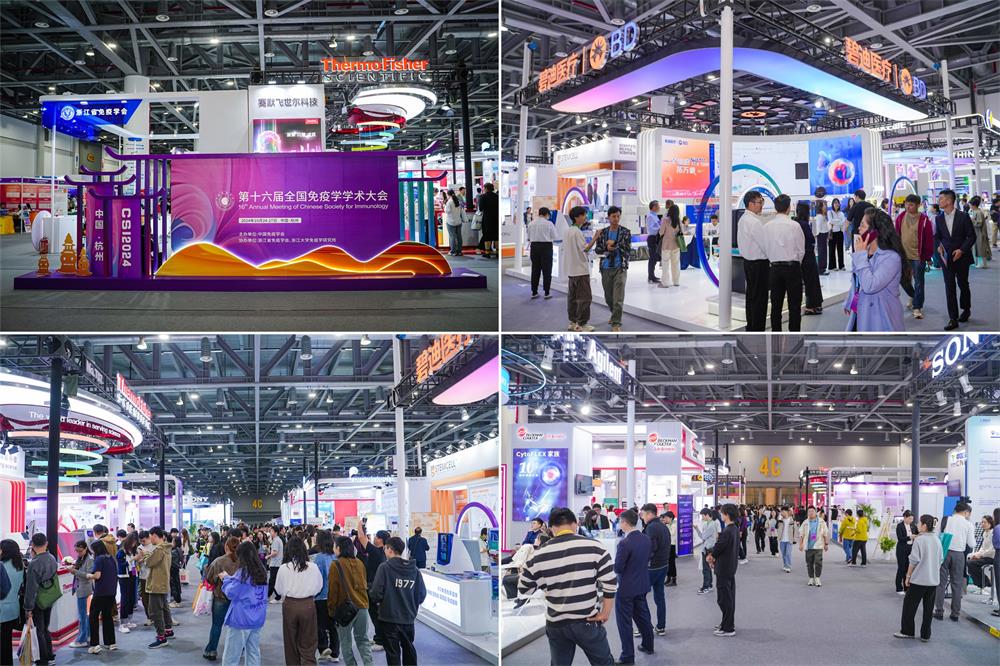
As a long-term partner, DXY carried out publicity and interviews for this congress, further expanding the academic influence and social impact of the congress.
1. The CSI Annual Meeting’s attractiveness has continued to grow steadily, based on years of ensuring high-quality academic exchanges and congress services. Despite significant growth last year, the number of abstract submissions and attendance still made a new history record. The congress received a total of 1,357 abstracts and had 4,199 registered representatives. Including invited speakers, exhibitor representatives, and volunteers, the on-site attendance exceeded 5,000 people.

2. The outstanding invited talks played an academic leading role. The international forum of this congress featured eight distinguished speakers, including: Professor Frederick Alt from Harvard Medical School, Professor Zhijian Chen from the University of Texas Southwestern Medical Center, Professor Lieping Chen from Yale University School of Medicine, Professor Thirumala-Devi Kanneganti from St. Jude Children's Research Hospital, Professor Mitchell Kronenberg from La Jolla Institute for Immunology, Professor Tomohiro Kurosaki from Osaka University, Professor Qiang Pan-Hammarström from the Karolinska Institute, and Professor Graham Ogg from the University of Oxford.

There were 27 talks by domestic invited lecturers, 7 of which were made by academicians including Professor Xuetao Cao from the Chinese Academy of Medical Sciences, Professor Zhigang Tian from the University of Science and Technology of China, and Professor Yuzhang Wu from the Army Medical University; 10 talks on the forefront of immunology led by Professor Bo Huang from the Chinese Academy of Medical Sciences Peking Union Medical College and Professor Yiwei Chu from Fudan University; and 10 speeches by young immunologists led by Professor Shu Zhu from the University of Science and Technology of China.

A total of 35 plenary lectures brought numerous global frontier topics in immunology-related fields, including gene rearrangement of immunoglobulins, the role of cGAS in inflammation, non-inflammatory tumor immunology, molecular mechanisms of innate immunity and inflammation in health and disease, innate-like T cells, the function and generation mechanism of memory B cells, genomic instability of B cells and lymphoma formation, CD1a reactive T cells and skin diseases, the role of hnRNP-A2B1 and innate sensing molecules in tumor immune evasion and immunotherapy, CD49a+ NK cells, pre-existing immunity and immune intervention, among others. High-level lectures and Q&A sessions helped participants understand the latest discoveries in the field, open up research ideas, and improve academic innovation capabilities. The presentations by young immunologists are evidences of more and more outstanding young talents emerging and gradually becoming the backbone of the immunology community.

3. The atmosphere of parallel symposia and poster sessions was intense. The academic committee reviewed nearly 1,400 abstract submissions and selected 300 oral presentations in 19 parallel symposia during two and a half days. In addition, 292 posters were selected. Together with oral presentations, the congress was providing ample opportunities for display and discussion. The enthusiasm of the participants was high, and there were frequent scenes of packed audiences in hot topics such as "Tumor Immune Recognition and Escape," "Innate Immune Recognition, Regulation, and Inflammatory Response," and "Immune Metabolism."

4. Special forums and other activities further enriched the content of the congress. Following last year's meeting, the number of pre-congress forums was further expanded to eight: Hong Kong and Macao Forum, Frontier Theories and Techniques in Tumor Immunity Forum, Immune Metabolism and Disease, Biomechanics & Immunity, Cutaneous Immunity, Intestinal Mucosal Immunity, Clinical Immunotherapy Forum, and Young Immunologist Forum. Representatives actively participated, and the response was enthusiastic.

During the congress, the CSI Working Committee on Science Popularization and Education organized the "Medical Immunology" series textbook launch, distributing textbooks to lucky representatives. The well-received "Editors Face to Face" event, featuring senior editors like Dr. Zhe Wang from Nature Cell Biology and Dr. Qingyu Huang from Nature Communications, facilitated deep exchanges with representatives, assisting and encouraging them to publish their academic achievements.

5. The 9th CSI General Assembly was successfully held on October 24. The Assembly elected the 9th board of council members. Prof. Bo Huang was elected CSI president; Prof. Zhi Yao, Prof. Yiwei Chu, Prof. Anlong Xu, Prof. Sidong Xiong, and Prof. Baojun Zhang were elected as vice presidents; Prof. Yuzhang Wu was elected chairman of the supervisory board; and Prof. Limin Zheng was appointed as the secretary-general. The 9th board consists of 139 council members and among them 40 executive members. During the congress, the 4th CSI Nomenclature Committee held its re-election meeting, with Prof. Zhi Yao elected as the new chairman; the 7th Committee of the CSI Veterinary Immunology Branch held its re-election meeting, with Prof. Chengjun Li elected as the new chairman.
6. The 12th CSI Academic Award-Young Scholar Award was awarded. 10 outstanding young scholars, including Dr. Yingjiao Cao from Sun Yat-sen University, received the award. The award ceremony was held at the closing ceremony of the congress, recognizing advanced achievements while inspiring all young people to strive for scientific peaks.

7. Under the leadership of the 8th CSI board of council members, the congress academic committee and organizing committee invested a lot of effort in top-level design, overall arrangement, management, and supervision. The volunteer team, organized and recruited by the Zhejiang Society of Immunology from 13 units across the province, made a significant contribution to on-site services and logistical support.
8. The congress received unwavering support from the sponsors. A total of 85 companies hosted exhibitions and satellite meetings at this congress, including long-term supporters of the society, such as strategic partners: BD Medical Devices Co., Ltd.; Gold Sponsors: Dakewei Biotech Co., Ltd., BioLegend (Beijing) Ltd.; Silver Sponsors: Thermo Fisher Scientific Inc., China National Biotec Group Company; Bronze Sponsors: Shanghai Cytek Biosciences, Proteintech, Sony Life Sciences, Miltenyi Biotec, Beckman Coulter Life Sciences, Thinkcyte K.K., etc. In the future. The society and enterprises continue to advance hand in hand, witnessing and jointly promoting the brilliant development of immunology.

As a long-term partner, DXY carried out publicity and interviews for this congress, further expanding the academic influence and social impact of the congress.


